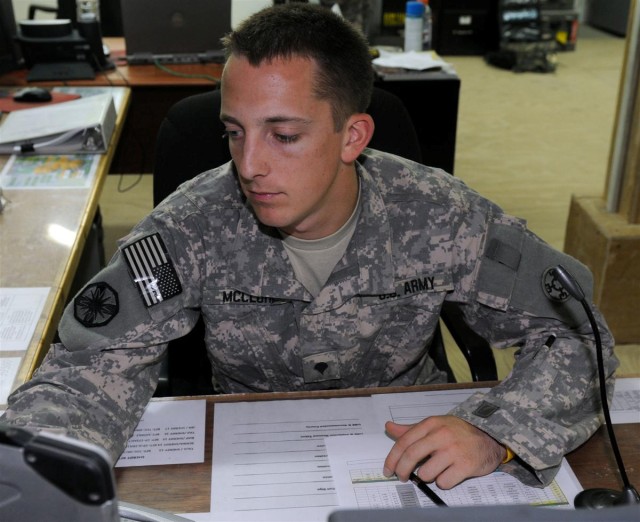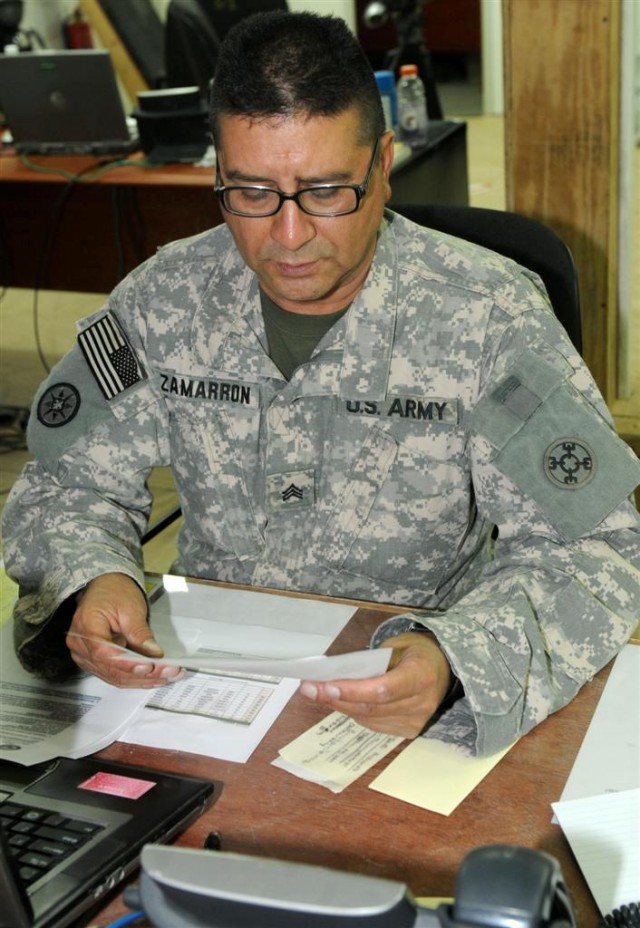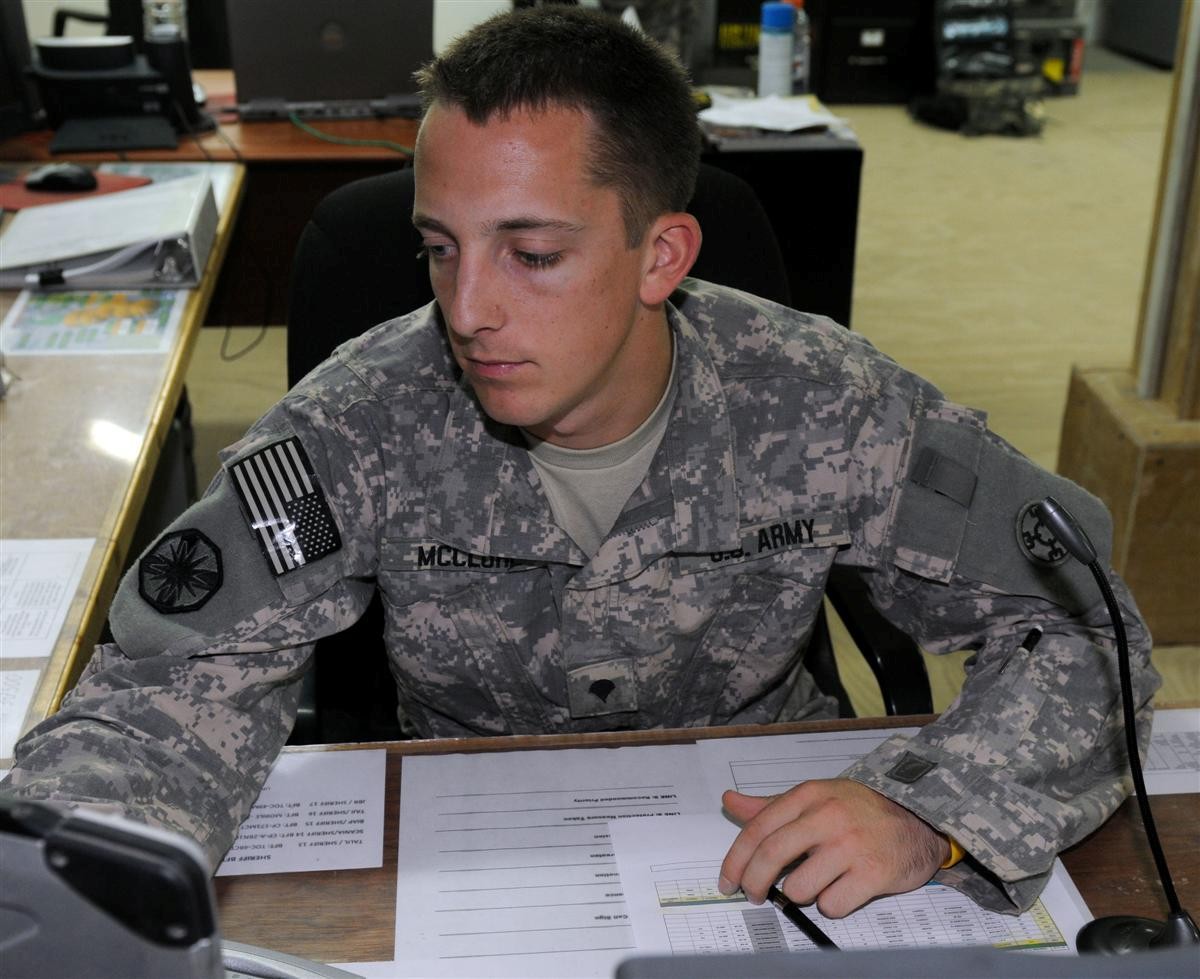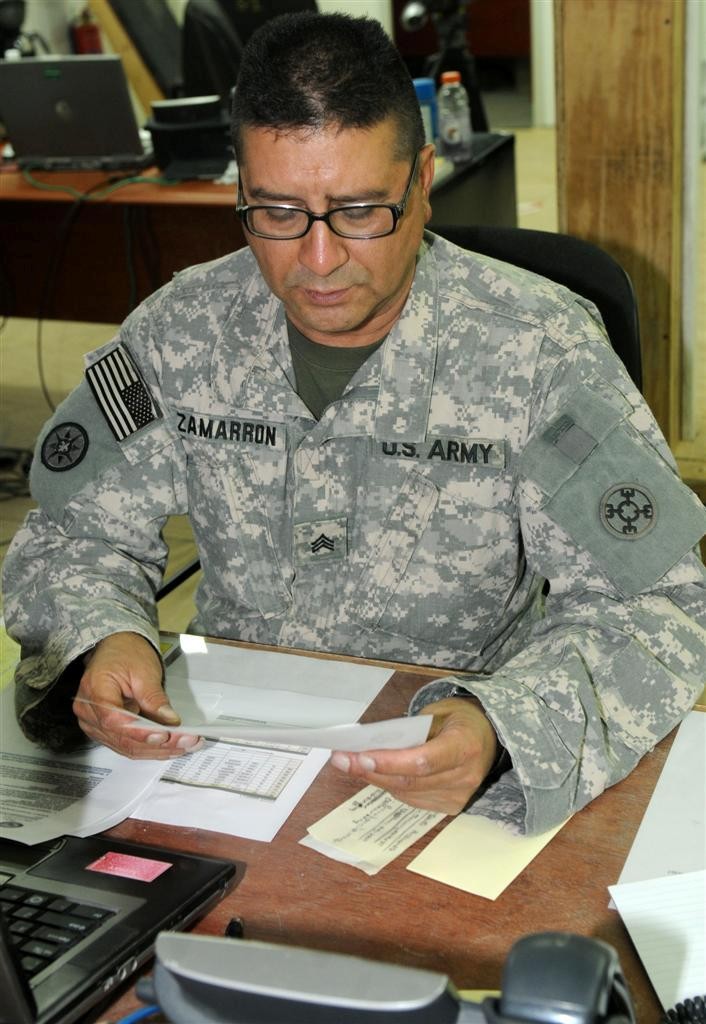JOINT BASE BALAD, Iraq - Convoys arrive at, depart from and pass through one of Iraq's primary logistics hubs, Joint Base Balad, Iraq, every day.
Sheriff Cell 17 serves as the emergency response cell for those convoys and any other convoy in northern Iraq, from JBB to Harbur Gate.
Sgt. Charles B. Zamarron, a Sheriff Cell 17 battle noncommissioned officer for the 969th Movement Control Team out of Belleville, Ill., with the 49th Transportation Battalion, 90th Sustainment Brigade, 13th Sustainment Command (Expeditionary) works the night shift for Sheriff Cell 17 at JBB.
"The sheriff cell is a 911 contact-relay station for all convoys in-coming and out-going to JBB if anything should occur on the road, be it (improvised explosive device), (unexploded ordnance), small arms fire - any type of action that occurs on the main supply routes, we are contacted, and then we contact ... any personnel that they might need," said Zamarron, a Shiloh, Ill., native.
Service members who work in Sheriff Cell 17 work 12-hour shifts, seven days a week, to monitor the convoys as they travel through Iraq.
"My specific duty is to take care of the (radio transmitter operators) and make sure that they are doing their job to monitor the systems that we have," said Zamarron.
Zamarron said if any of the convoy commanders come in, it is his job to brief them on the latest intelligence and verify their call signs, start time, destination and number of personnel and vehicles.
Sheriff Cell 17 is one of the operations at JBB that is joint-service operated, he said.
"Teamwork is very important here at Sheriff 17," said Zammarron. "Everybody works in conjunction with everyone; we've got a good rapport going with all the guys. As stressful as it can get, everybody seems to handle it very well. They are very knowledgeable; they have been trained up very well."
When an emergency arises, his team can usually handle it within 25 to 30 minutes, he said.
Air Force Senior Airman Matthew Martinez, a radio transmission operator at Sheriff Cell 17 with the 52nd Movement Control Team, said working with radios takes him out of his comfort zone because it is not equipment the Air Force uses.
Martinez, an Oklahoma City native, said he enjoys interacting with the convoys and the Army.
"I think it goes well as a joint task," he said. "I get to learn, myself, from the Army's perspective ... and then, hopefully, they get to learn from me."
One of the key things to remember if an incident should occur is to maintain military bearing and not panic, said Martinez.
"It is very important for you to stay calm," he said. "If you start freaking out, the convoy starts freaking out."




Social Sharing